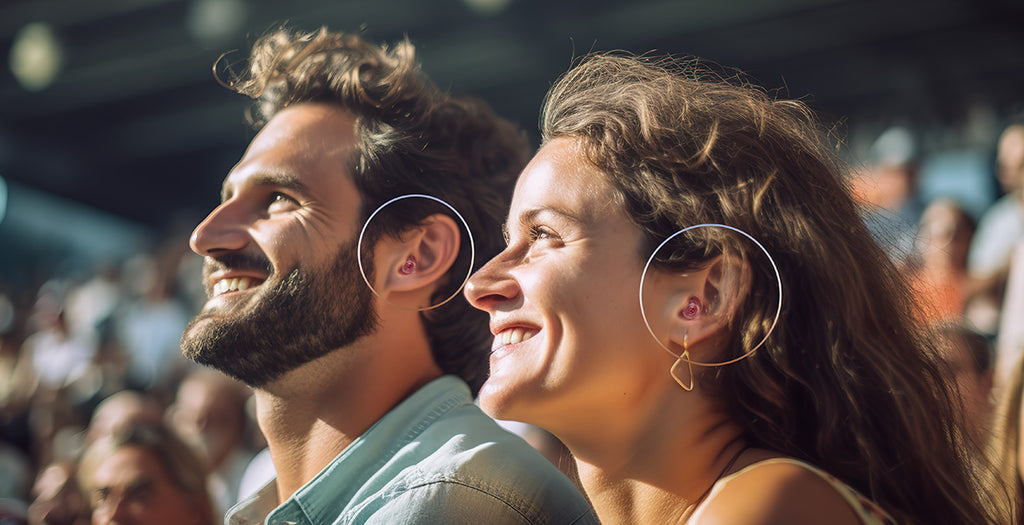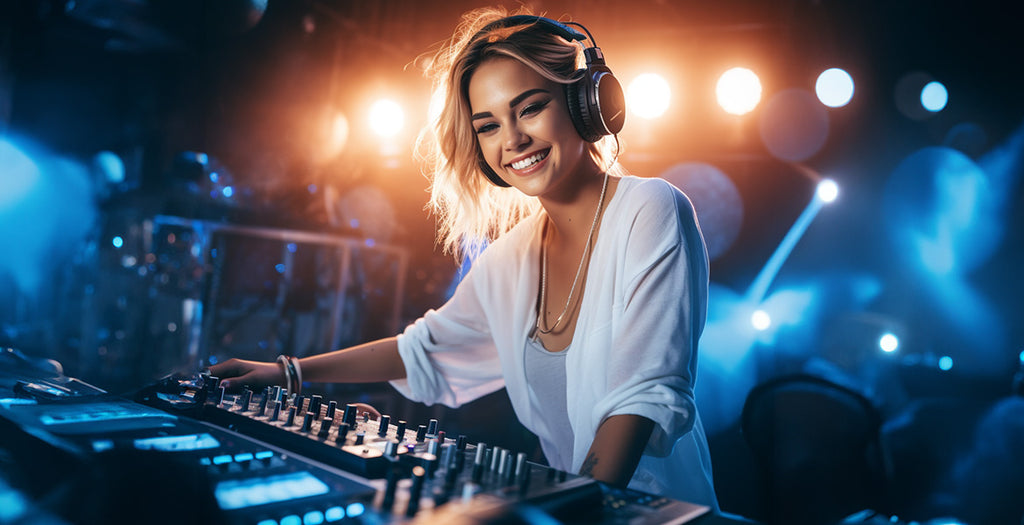Concerts frequently exceed safe noise levels. The average rock concert reaches 110-120 decibels, which can cause hearing damage in just a few minutes. Even short-term exposure can lead to temporary or permanent hearing loss.
The good news is that you can still enjoy concerts while preventing hearing damage. By following smart ear protection strategies before, during, and after the show, you can safely rock out to your favorite tunes.
Use High-Fidelity Music Earplugs

High-fidelity or "musician's" earplugs are specially designed earplugs that reduce harmful noise levels while allowing you to hear music with excellent sound quality. Unlike regular foam earplugs that muffle sound indiscriminately, high-fidelity earplugs use advanced filtering technology to lower decibel levels evenly across frequencies. This preserves sound clarity and spatial cues to fully enjoy live music. High-fidelity earplugs typically come with interchangeable filters that let you choose between 9dB, 15dB, and 25dB noise reduction. This allows you to customize the earplugs to your needs, whether attending a lightly amplified gig or a loud rock concert.
With the proper use of selective-filtering, customized-fit high-fidelity earplugs, you can experience all the joy of live music while keeping your hearing safe from hazardous noise levels.
Wear Earplugs and Earmuffs for Double Protection
Wearing earplugs and earmuffs together provides extra security at your hearing at very loud concerts.
This double-layer method blocks more sound as the earplugs and earmuffs work together to reduce noise. Getting earplugs with a high NRR (noise reduction rating) and earmuffs with a high SNR (single number rating) significantly lowers decibel levels reaching your ears. Look for earmuffs with an SNR of 30 or higher, like 3M Peltor X5A or Decibel Defense 37dB NRR. Pair with earplugs offering an NRR of 20 or more.

Be sure to put earplugs in first, then the earmuffs over them. Adjust the earmuffs to make a secure and comfortable seal around the earplugs. Check often to ensure proper fit and positioning.
Take Frequent Breaks During the Concert
Attending a music concert without breaks can overwhelm your ears and cause temporary or permanent damage.
- Stepping out periodically allows your ears to recharge and recover from the constant loud volumes. Ideally, take 15-30 minute breaks every hour by moving to a quieter area like the lobby or exiting the venue completely.
- Remove your earplugs during breaks to give your ear canals fresh air exposure. Use the time to rehydrate, eat a snack to refuel, and let your ears fully rest from noise.
- Toward the end of the show, noise levels often surge, so consider leaving early.
- Listen to your body - if you experience ringing ears or dulled hearing, take a longer break.
Following these concert ear break tips will help minimize the cumulative impact on your hearing and prevent overexposure. Given proper rest periods, your ears can bounce back, and you can better enjoy the entire show safely.
Be Aware of Pain or Ringing as Warning Signs
Listen to your body - ear pain or tinnitus after the show often indicates sound damage.
If your ears ache, buzz, or ring during or after the concert, they are likely being overexposed. The same goes for slight muffling of sound. Don't ignore these signs, if your ears start hurting at the show; immediately back away from the stage speakers. The louder the pain, the higher the risk, so be ready to exit the area.
Have a Post-Concert Check-Up With an Audiologist
It's wise to test your hearing after going to loud shows. Even mild, temporary symptoms indicate your ears took a hit. Professional testing soon after a concerted check for damage. Search for licensed audiologists near you, looking for those with expertise in diagnosing noise-induced hearing loss. Your doctor can also provide referrals. The test determines hearing thresholds across pitches. The audiologist checks for early signs of hearing loss you may not notice yourself.
Conclusion

Concerts can be fun but also dangerous for your hearing. Protect your irreplaceable ears using high-fidelity earplugs and taking regular breaks to limit noise exposure. Listen for pain or ringing as warning signs to exit loud areas immediately. Get a professional hearing test after shows to catch any early damage. Follow these research-backed concert ear safety tips so you can keep enjoying live music for years to come. Don't let hearing loss prevent you from joining in the musical experience. Be smart and protect your ears proactively.
Read More
- 2023's Top Earplugs for Concerts: Hearprotek Earplugs Review – hearprotek
- Silicone Ear Plugs vs Foam Ear Plugs: What Is the Difference? – hearprotek
- Can I Use Regular Earplugs for Swimming? – hearprotek
- Best earplugs for musicians 2023 – hearprotek
- Earplugs vs. Earmuffs: Which Offers Better Hearing Protection? – hearprotek












